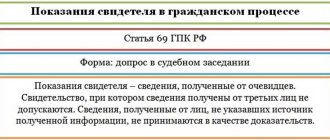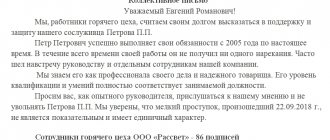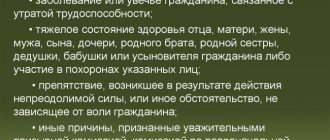How to draw up an application for the inclusion of documents and other evidence in a civil case? Who has the right to draw up and submit such a petition to the court? Here you can make statements. Fill it out with the necessary data and your application will be ready.
During the trial, participants in civil proceedings must prove their arguments (Article 56 of the Code of Civil Procedure of the Russian Federation). The parties mainly use written documents as evidence. Testimony of witnesses (about calling witnesses) and forensic examination are also suitable. But mostly - documents.
The plaintiff may submit documents and other evidence along with the statement of claim, and the defendant, along with a response to the claim. In this case, there is no need to prepare a separate application. The documents are listed in the list of appendices to the main document. If written documents and other evidence are presented separately, then it is better to fill out a separate application according to the provided sample.
If it is impossible to provide evidence, the applicant does not have it and he cannot obtain it from the person who possesses it, the following is drawn up:
Request for evidence
How to make a petition
The current legislation does not establish strict requirements for its design, but nevertheless a certain structure has developed as a result of legal practice:
- "A cap". Here you should indicate the name of the court and its address, as well as the full name and contact information of the plaintiff and defendant. If one of the parties is an organization, then you need to indicate its name and legal address.
- The title and number of the case in question.
- List of attached documents. At the same time, it is necessary to add explanations as to why this information is important.
- Please provide evidence regarding the dispute under consideration.
- The date the document was drawn up and the signature of the applicant.
Sample request for inclusion in the case materials
Attaching documents to the materials of a civil case: main features of the procedure
In accordance with the provisions of Art. 35 of the Civil Procedure Code of the Russian Federation, persons participating in the case have the right to submit documents to the court both on paper and in electronic form, including in the form of an electronic document.
What documents and evidence can be added to the materials of a civil case in 2021? During the trial, you can use any information to support your position. For example:
- Information obtained from official sources;
- Results of independent examination;
- Photos and screenshots;
- Audio and video recordings;
- Printouts of telephone calls, etc.
It must be borne in mind that in accordance with Art. 59 of the Code of Civil Procedure of the Russian Federation, the court may refuse to satisfy the petition if the significance of these documents for the case under consideration is not confirmed.
That is, documents can be attached to the materials of a civil case if:
- With their help, any circumstance included in the subject of proof is established;
- With their help, factual data already available in the case is verified;
- They deny the existence of certain circumstances.
How to submit a petition
There are three options for submitting statements that confirm the version of one of the parties.
- Before the trial. In this case, you need to make two copies: one will remain with you, indicating the date, stamp and signature of the office employee who accepted the application.
- During the trial. Before it begins, the judge gives the parties the opportunity to file a motion.
- By registered mail with notification.
Both originals and certified copies can be attached to the case. In most cases, copies are sufficient - moreover, this minimizes the risk of losing important papers. However, in some cases only originals are required:
- if only the original documents confirm information on the claim under consideration;
- if the original and the copy are not identical, or several copies differ from each other;
- if it is impossible to consider the claim without the original (for example, for a handwriting examination, the original of the contract is required).
Drawing up a petition
We advise you to read:
- ✅ Request to leave a statement of claim without consideration: sample
- ✅ Application for restoration of a missed procedural deadline
- ✅ Sample claim for recognition of ownership of real estate
- ✅ Sample claim for collection of funds by receipt
As a rule, the inclusion of case materials is intended to prove certain circumstances in the case under consideration. In some cases, the court itself may request such documents; in other situations, the provision of materials is a necessary condition for filing a claim and its acceptance into proceedings. Without these documents, the plaintiff simply will not be able to file a claim. Sometimes the need to defend one's own position arises during the proceedings.
When drawing up an application, you must take into account that it must contain:
- A list of documents required for inclusion in the case, the circumstances that they can confirm and the purpose of inclusion in the case;
- Please attach materials to refute or confirm the information.
It is important to understand that the documents that will be provided to the court will become evidence. It is necessary to determine how permissible they are and how they relate to the case. If the court has received copies of documents, the applicant must bring the originals with him to the trial. If the originals are not available, you must submit an application to claim them.
The legislation does not provide clear rules regarding the registration of an appeal. But a certain structure must be followed during the preparation of the document. This will avoid delays.
The application can be submitted before the start of the proceedings, and it does not matter at all which authority is considering the case. It implies several direction options:
- A letter issued with notification. This case requires a detailed list of submitted documentation;
- Filing at a court hearing. You must appear at the courthouse where the civil case is being heard and file a petition yourself.
Prepare 2 copies of the document. You will give 1 copy to the court office, the other (with the date, stamp and signature of the person responsible for receiving materials) you will keep for yourself. You can write a petition with the involvement of a lawyer and without the help of a professional.
Requirements for video evidence and other materials
The court recognizes video, photos and audio materials as admissible if:
- the applicant will indicate when, under what circumstances and by what technical means he received the recording;
- videos and photos do not violate the law that regulates the collection, storage, use and dissemination of information about the private life of a person (part 1 of article 24 of the Constitution of the Russian Federation, paragraph 7 of article 3 of the Federal Law of July 27, 2006 No. 149-FZ “On Information” , information technology and information protection");
- You can accurately identify a person captured in a video or photo.
Sample request for inclusion of documents
Submitting an application
There are two ways to submit an application:
- By mail. When using this method, a list of documents must be attached to the registered letter. In this case, you should make sure that the letter has reached the addressee, i.e. there must be a notification of delivery.
- Personally. In this case, you need to prepare 2 copies of the application. One of them, filed through the court office, is attached to the case materials. Another copy is kept by the applicant, on which a corresponding mark of acceptance is made - a stamp, the signature of the person who accepted the document and the date of its registration are affixed.
The petition can be submitted both before the start of the trial and directly during it.
Inclusion of written testimony of a witness in a criminal case
Recently, information was published on the AG website about a lawyer’s appeal to the FPA of the Russian Federation with the question of whether the protocol of a lawyer’s interview is relevant and admissible evidence in court. In his letter, the lawyer drew attention to the fact that in judicial practice there has been a contradictory approach to assessing the written explanations of a witness drawn up by the lawyer, and therefore, in his opinion, it is necessary to discuss this topic.
The question of the possibility of including at a court hearing the written testimony of a witness in a criminal case who refuses to appear in court also remains open.
In our opinion, the testimony of such a person can be drawn up in the form of an act of questioning by the defense attorney in accordance with paragraph 2 of Part 3 of Art. 86 Code of Criminal Procedure of the Russian Federation. It is advisable to request that such a document be included in the case materials along with a petition to involve the relevant person as a witness. If this is in the interests of the principal, it is possible, after the relevant person has received the status of a witness, to apply for the postponement of the court hearing or for the summons.
In the practice of considering criminal cases, there are situations when a lawyer representing one of the parties, already at the stage of the judicial investigation, becomes aware of persons who were not involved in the case as witnesses, but their testimony may be important for the correct consideration and resolution of the case. Under these circumstances, the lawyer has the right to file a petition to involve the named person in the case as a witness, which is subject to consideration by the court.
At the same time, cases may arise when a person who could give the necessary testimony refuses to appear at a court hearing for various reasons (for example, due to long periods of consideration of the case, concerns related to the identity of the accused, being on a business trip, etc.) . Practice shows that even if a request to involve the relevant person as a witness is granted, the court may not exercise its right to issue a ruling to summon or bring a witness (if he fails to appear without good reason) or to postpone the court hearing in accordance with Art. 272 of the Code of Criminal Procedure of the Russian Federation with reference to the principle of a reasonable period of criminal proceedings (Article 6.1 of the Code of Criminal Procedure of the Russian Federation). Article 281 of the Code of Criminal Procedure of the Russian Federation on the disclosure of witness testimony is also inapplicable in this case, since the witness has not yet given any testimony in the criminal case.
In judicial practice, there is a tendency to use interviews of persons who refuse to appear at a court hearing as witnesses, by a lawyer - a representative of one of the parties. This is done by analogy with the common law system, where the institution of affidavit is developed and actively used - written testimony made under oath to an authorized person, including lawyers, or the so-called “professional statement” - a term used in US law to denote a document prepared by an attorney and having the same legal force as an affidavit.
In particular, the English Criminal Procedure Rules (clause 16.4) contain provisions on the evidentiary value of a written witness statement in evidence, according to which the court has the right to accept a written statement of a witness about the circumstances known to him as appropriate evidence in a criminal case or call a witness for personal questioning at a court hearing.
Such a statement (also called an “affidavit”) has independent evidentiary value in the criminal procedural legislation of Canada (see, for example, Article 4.06 of the Rules of Criminal Procedure of the Supreme Court of Ontario)2.
It should be noted that the right to question persons with their consent is expressly provided only for defense attorneys in a criminal case (Clause 2, Part 3, Article 86 of the Code of Criminal Procedure of the Russian Federation), which raises the question of the admissibility of using the analogy of the law with the provision of such a right to representative lawyers other participants in criminal proceedings. From our point of view, such an analogy seems justified in light of the wording of Part 2 of Art. 86 of the Code of Criminal Procedure of the Russian Federation on the right of the victim, civil plaintiff, civil defendant and their representatives to collect and present written documents and objects for inclusion in a criminal case as evidence, as well as Explanation No. 1 of the Council of the Moscow Bar Association on issues of professional ethics of a lawyer3.
At the same time, any procedural action of a representative in a criminal (and other case) must meet the interests of the principal, namely the effective solution of emerging practical problems. Accordingly, the question arises about the real evidentiary value of the information obtained as a result of interviewing individuals by a lawyer, and, as a consequence, the advisability of using this mechanism.
The Federal Chamber of Lawyers in the Methodological Recommendations for the implementation of the rights of a lawyer provided for in paragraph 2 of Part 1 of Art. 53, part 3 art. 86 of the Code of Criminal Procedure of the Russian Federation and paragraph 3 of Art. 6 of the Federal Law “On Advocacy and the Bar in the Russian Federation” is based on the fundamental possibility of recognizing the act of a lawyer’s survey as independent evidence provided for in paragraph 6 of Part 2 of Art. 74 of the Code of Criminal Procedure of the Russian Federation and meeting the requirements of Art. 84 of the same Code.
According to the FPA of the Russian Federation, “the following data should be reflected in the act: information about the lawyer who conducted the survey, indicating the legal education, the bar association of the constituent entity of the Russian Federation in which this lawyer is listed, his number in the relevant register and the number of the warrant on the basis of which he carries out assignments in this case; last name, first name, patronymic, date and place of birth of the person being interviewed, his place of residence, place of work, position, home and work telephone numbers, information about documents proving his identity, relationship to the accused and the victim; mark indicating consent to the survey. The act of interrogation, it seems, must meet the requirements for the protocol of interrogation of a witness (Articles 189–191 of the Code of Criminal Procedure of the Russian Federation).”
At the same time, the protocol of interrogation of witnesses includes a note warning the person about criminal liability for giving knowingly false testimony, which raises the question of the legality of making such a note in the act of lawyer questioning and the evidentiary value of such an act in the absence of a mark.
According to the opinion of the Constitutional Court of the Russian Federation, expressed in the Determination of April 4, 2006 No. 100-O, putting such a mark to confirm that a person was warned by a lawyer about criminal liability, “would mean giving - contrary to the requirements of the Constitution of the Russian Federation and criminal procedure legislation – a procedural function unusual for it.”
Based on the results of studying judicial practice, we can conclude that the courts do not recognize such “acts” or “protocols” of surveys as independent evidence in the case
In particular, in the already mentioned ruling of the Constitutional Court of the Russian Federation, which addresses the issue of compliance with the Constitution of the Russian Federation, clause 2, part 3, art. 86 of the Code of Criminal Procedure of the Russian Federation, it is stated that the information obtained by the defense lawyer as a result of the interview can be considered as the basis for interrogating these persons as witnesses or for carrying out other investigative actions , since they must be verified and evaluated, like any other evidence, from the point of view of relevance, admissibility, reliability, and all the collected evidence in the aggregate – within the framework of sufficiency for resolving the criminal case.
A similar position was expressed by the Supreme Court of the Russian Federation in the cassation ruling of the Judicial Collegium for Criminal Cases dated August 10, 2006 in criminal case No. 39-006-9, during the consideration of which the question arose about the falsification by the defender of the interview protocols added to the case materials: “information received by a defense attorney as a result of an interview, can become evidence in a criminal case only when the person interviewed by the defense attorney confirms this information during an interrogation conducted in accordance with the requirements of the criminal procedural law by an interrogating officer, investigator, prosecutor or court. The survey protocol is only a form of recording the progress and results of the survey ”4.
The lower courts follow this position. Thus, the Appeal Ruling of the Amur Regional Court dated April 23, 2013 in case No. 22-623/13 contains the conclusion that this document can only be used as a basis for questioning relevant persons as witnesses or for carrying out other procedural actions in order to checks and assessments, since during such a survey the person is not warned of criminal liability in accordance with paragraph 2 of Part 3 of Art. 86 of the Code of Criminal Procedure of the Russian Federation and provided for in Art. 51 of the Constitution of the Russian Federation the right not to testify against oneself and one’s close relatives is not explained to such a person5.
A more loyal position is expressed in the ruling of the St. Petersburg City Court dated July 2, 2013 No. 4489: “In accordance with Art. 86 part 3 clause 2 of the Code of Criminal Procedure of the Russian Federation, the defense attorney has the right to collect evidence by interviewing persons with their consent. However, the data obtained as a result of interviewing persons is subject, like all other evidence, in accordance with Art. 87 of the Code of Criminal Procedure of the Russian Federation is verified by comparing them with other evidence and in accordance with the requirements of Art. 88 of the Code of Criminal Procedure of the Russian Federation assessments from the point of view of relevance, admissibility and reliability.” However, in this case, the court found the survey act drawn up in violation of the requirements of Part 5 of Art. 164, 189 of the Code of Criminal Procedure of the Russian Federation, and also indicated that the person in question was previously questioned as a witness by the investigator and the court.
This conclusion corresponds to the previously expressed position of the Supreme Court of the Russian Federation regarding the admissibility of questioning a person who has already been questioned in a criminal case as a witness (Resolution of the Judicial Collegium for Criminal Cases of the Armed Forces of the Russian Federation on the resumption of proceedings in a criminal case due to new circumstances, dated January 20, 2010 No. 1PK10): “Within the meaning of Part 3 of Art. 86 of the Code of Criminal Procedure of the Russian Federation, the defense attorney has the right to collect evidence, including by interviewing persons with their consent who are not witnesses (victims) in the prescribed manner.” It should be noted that the Moscow Bar Association takes a similar position on the inadmissibility of conducting a lawyer's survey in parallel with the interrogation of a witness (Explanations (No. 1) of the Council of the Moscow Bar Association on issues of professional ethics of a lawyer).
Thus, despite the fact that the testimony of a person who knows the circumstances significant for the criminal case can be drawn up in the form of an act of questioning by a lawyer in accordance with paragraph 2 of Part 3 of Art. 86 of the Code of Criminal Procedure of the Russian Federation, the court will most likely refuse to recognize such a document as independent evidence.
In this case, it is advisable to request that such a document be included in the case materials along with a petition to involve the person interviewed by the lawyer as a witness. If this is in the interests of the principal, after the interviewed person has received the status of a witness, it is possible to apply for a postponement of the court hearing or a summons.
1 29 Am Jur 2d Evidence.
2 Criminal Proceedings Rules for the Superior Court of Justice (Ontario), SI/2012-7 (https://laws-lois.justice.gc.ca/eng/regulations/SI-2012-7/FullText.html).
3 Bulletin of the Moscow Bar Association. 2003. Issue No. 1. P. 30–31; 2004. Issue No. 11–12 (13–14). pp. 40–41; 2007. Issue No. 1(39). pp. 103–104. Collection of regulatory and information materials for 2002–2014: Special issue of the Bulletin of the Moscow Bar Association. – M., 2014. pp. 108–109.
4 See also the Cassation ruling of the Judicial Collegium for Criminal Cases of the Supreme Court of the Russian Federation dated February 4, 2008 in case No. 69-O08-4sp.
5 See also: Appeal ruling of the court of the Chukotka Autonomous District dated February 11, 2014 in case No. 22-4/14, No. 1-64/13; Information on the results of studying the practice of applying the norms of criminal procedure law governing the court's provision of the right to defend the accused (defendant) when considering criminal cases by the Nizhny Novgorod Regional Court at first instance for the period 2012 and 6 months of 2013 - “Bulletin of the Nizhny Novgorod Regional Court ", No. 11, November, 2013









